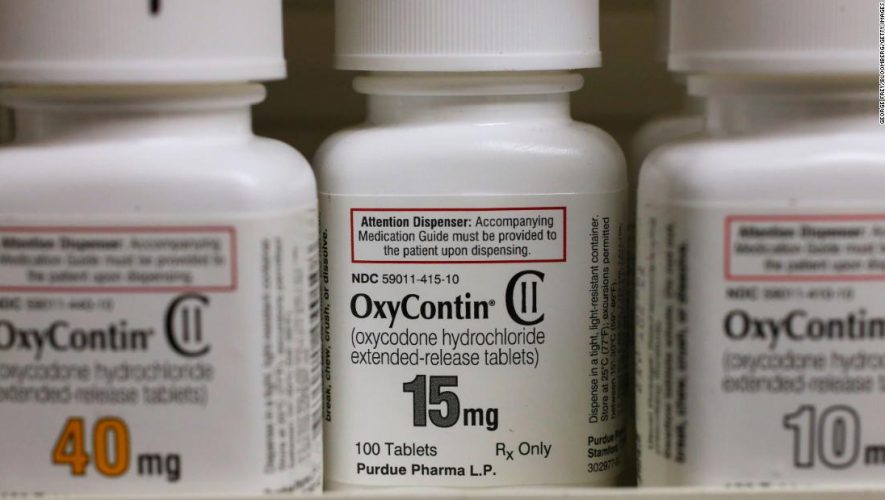From 1999 to 2021, opioids caused over 70 percent of the one million drug overdose deaths in America. The Opioid Crisis was declared a public health emergency in 2017, owing largely to Purdue Pharma’s 1996 release of OxyContin: a potent opioid similar to heroin. Purdue Pharma’s false advertising of the drug’s addictiveness led to overprescription, patient addiction, and significant company profits. To avoid another drug epidemic from occurring, the United States government must take action.
The Sackler Strategy: Wealth Protection Through Bankruptcy Loopholes
Following a lawsuit in 2007, the Sackler family, the owners of Purdue Pharma, withdrew nearly 11 billion dollars from the company into their pockets. Now, they have declared bankruptcy through a loophole in the current Bankruptcy Code, allowing them to escape liability from thousands of victims of the Opioid Crisis. To prevent powerful and wealthy companies from shielding liability from claimants, the federal government must pass legislation amending The Bankruptcy Code (referred to as “the Code”).
Although States have bankruptcy laws of their own, a person or entity filing for Chapter 11 Bankruptcy must do so under federal law. Purdue Pharma declared bankruptcy under Chapter 11 of The Bankruptcy Code in 2019, conveniently as the company was facing thousands of lawsuits from addiction survivors and families of victims. Many other large corporations have leveraged the same tactic to avoid liability.
By declaring bankruptcy in the Code, states have become powerless. The only solution is federal.
The Supreme Court’s Influence on Purdue Pharma’s Accountability
One solution rests in the hands of the Supreme Court, which recently heard the case Purdue Pharma v. Harrington in early December 2023.
The case revolves around victims, families, and governments who filed claims against Purdue Pharma due to the false marketing of OxyContin. In the midst of the lawsuits, Purdue Pharma filed for bankruptcy, which stopped the cases from being heard until a restructuring plan was approved. As a result, the restructuring plan stopped third-parties, victims, families, and governments from filing lawsuits involving the sale or distribution of OxyContin. This tactic for dismissing claimants by bankrupt companies is generally known as “non-consensual third party release.”
Given the unpredictability of the Supreme Court, it is unreliable to depend on a ruling to fix the loophole. Furthermore, the Court has a tendency to favor business interests, putting the odds in Purdue’s favor. A tangible resolution rests in federal legislation that would permanently amend how individuals take advantage of the current Code.
Legislative Battles: The Fight to Pass the SACKLER Act
Congressional legislation is unlikely, but is imperative to amend the Bankruptcy Code. Past failed efforts to amend the Code need to be reignited. In 2021, Rep. Carolyn Maloney (D-NY-12) introduced The Stop Shielding Assets from Corporate Known Liability by Eliminating Non-Debtor Releases (SACKLER) Act. The proposed law would restrict individuals who have not declared bankruptcy from being exempt in legal cases initiated by state, local, or federal governments. The language of the bill is effective in closing the loophole for non-debtor releases. However, the bill died in a previous session of Congress (2021) without receiving a vote.
While Purdue Pharma may be bankrupt, the Sacklers certainly are not. Money is a lifeline running through the Purdue Pharma case. The Sackler family has billions of dollars siphoned from the unfortunate success of OxyContin, while victims are left paying thousands in rehabilitation and funeral costs. While Purdue Pharma declared bankruptcy in 2021, this move came amidst a backdrop of significant lobbying efforts, with the company having spent 1.2 million dollars in this area. These efforts—occurring in parallel with the Sackler family’s close monitoring of legislative developments like the SACKLER Act—suggest that the Sacklers are taking a strategic approach to managing their legal and financial challenges.
Given the Sackler family’s wealth and lobbying power, the likelihood of passing a victim-centric bill is nearly impossible.
The SACKLER Act was filed again with identical language by Senator Richard Blumenthal (D-CT) this session. Yet, due to current turmoil in Congress and Congressional gridlock, the passing of the bill is unpromising. With a polarizing split between Republican and Democratic parties, less laws were passed than ever before in 2023. The Sacklers’ wealth and lobbying power would trump that of victims. The bill is unlikely to receive support in a split and paralyzed Congress. Resolving the Bankruptcy Code is not a current priority in Congress, but it must become one.
Mobilizing for Change: The Crucial Role of Public Support and Activism
To compensate and support the claimants, the Sackler family could effectively set up a fund for victims with the money earned from the sale of OxyContin. This seems unlikely given the family’s repeated claims that they bear no responsibility for the drug’s abuse. The Sacklers argue that addiction is a personal responsibility.
However, many victims were not prone to addiction and were ordinary medical patients given OxyContin. Unaware of its risks, they trusted their doctors, who were also misled about the drug’s safety. Reframing the issue, much like the approach taken with the legalization of gay marriage, is imperative to garner public support for controversial legislation. Organizations play a crucial role in shifting the stigma around drug addiction discussions by bringing in experts from government, evaluation, service delivery, and care planning. By reframing the issue, they can help ignite a new public interest and shift perceptions around addiction.
Public support for justice must drive the SACKLER Act’s passage for innocent victims. Strong societal support will motivate Congress to urgently pass the bill. Additionally, substantial financial resources are essential for lobbying to surpass the Sackler family’s influence. In today’s polarized climate, gaining attention for the bill is crucial, as polarization often stalls legislation not in the public spotlight.
The passing of the SACKLER Act is not impossible. It is the most reliable solution to amend the Bankruptcy Code. The power for a bill to be passed rests in the public interest and opinion of the American people. The need for political activism has never been more apparent than it is now. In a current climate where American politics polarize nearly every issue, there needs to be a united call for justice against billionaires taking advantage of bankruptcy.
Money and political ideology aside, the Opioid Crisis is a national tragedy. Nearly thirty years after the launch of OxyContin, opioids continue to kill 136 Americans every day. The Crisis haunts Americans on all fronts, in all corners of the country, no matter their political ideology. The Opioid Crisis has the power to unite Congress and the Supreme Court, but the path towards unity rests with the power of the American people.



